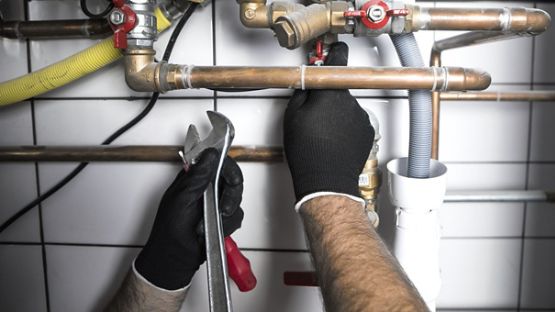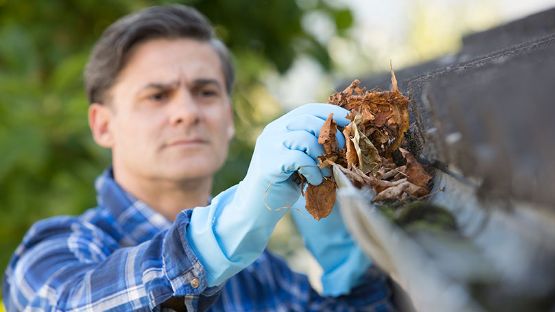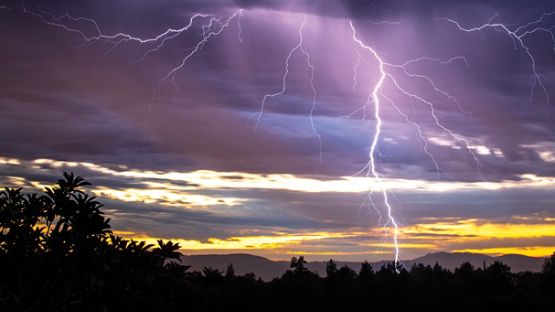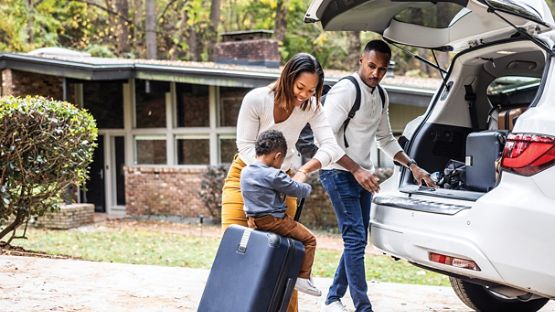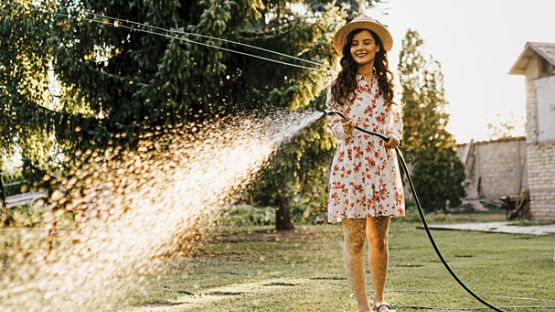The Insurance Bureau of Canada's data shows that insured losses from severe weather events have been consistently high in recent years. Since 2016, annual insured losses have routinely exceeded $2 billion, compared to an average of $456 million per year in the decade before 2008.
Power outages, sudden storms, flooding, earthquakes and wildfires are just some of the events that could necessitate a home evacuation on short notice. The real question is: Would you be prepared to leave at a moment’s notice? Having a grab-and-go bag (also known as a 72-hour emergency kit) can be a literal lifesaver and, by the end of this blog post, you’ll know exactly what you need to build one.
Key takeaways:
- A 72-hour emergency kit, also known as a grab-and-go bag, can be essential for surviving emergencies like natural disasters and power outages. It should contain supplies for at least three days.
- Key items include water (one gallon or four litres per person per day), non-perishable food, a first aid kit, hygiene products, tools like a multi-tool and flashlight, documents and cash. Customize kits for each family member, including pets.
- Adapt your kit for specific needs, such as medical conditions, seasonal changes and comfort items for children and pets.
What is a 72-hour emergency kit or grab-and-go bag?
A 72-hour emergency kit is a collection of essential items that can help you and your loved ones survive for up to three days during an emergency. The kit includes supplies like food, water, clothing and medical essentials, packed in a portable container that’s easy to grab and go (hence the alternative name ‘grab-and-go bag’).
Why 72 hours? The 72-hour timeframe is critical because it represents the period within which emergency responders are likely to reach you. Having enough supplies to last this duration can significantly improve your chances of staying safe and comfortable until help arrives.
What goes into an emergency kit or grab-and-go bag?
Emergencies can take many forms, including natural disasters like earthquakes, floods, winter hazards and wildfires or man-made events such as power outages and evacuations. A well-prepared kit can make a significant difference in these or similar situations.
To some extent, the contents of your grab-and-go bag will be tailored to the individual needs of your family (family size, their ages, medical conditions, pet requirements), but there are some essentials:
Essential components of emergency kits
Depending on the size of your household or family, assembling multiple grab-and-go bags tailored to each family member's needs is a smart and practical approach. This not only allows you to carry adequate items for everybody’s safety but also spreads the load so every member carries their own supplies. Learn more here.
Here are the essentials:
- Water: Aim for at least one gallon (or four litres) per person per day; water is vital for hydration, cooking and sanitation
- Non-perishable food: Stock up on items like canned goods, energy bars and dried fruits
- Small first aid kit: Include bandages, antiseptic wipes, pain relievers and any prescription or personal medications you may need
- Hygiene and sanitation
- Moist towelettes and hand sanitizer: To maintain hygiene
- Garbage bags: For waste disposal
- Face masks: In case air is contaminated
- Period products: Don't forget personal care needs
- Tools and supplies
- Multi-tool or knife: Versatile tools for various tasks
- Flashlight and extra batteries: Essential for navigating in the dark
- Whistle: Useful for signalling for help
- Manual can opener: So you can access canned food
- Phone charger and battery bank: So your phone doesn’t die
- Battery-powered or hand-crank radio: Stay updated with emergency broadcasts
- Extra set of keys: For your home and car
- Documents, stationery and cash
- Local maps: In case you need to navigate without GPS
- Copies of personal documents and insurance papers: Include IDs, insurance policies and emergency contact information (a USB key with these documents is a good backup too)
- Help or OK Sign: Display the appropriate side outward in your window during a disaster
- A copy of your emergency plan
- Pen and notepad
- Cash in small bills
Special considerations (optional extras)
Beyond the essentials, take a moment to consider specific needs you and your household may have. For example, you may want to adapt your grab bag seasonally (jackets in winter, sunscreen in the summer) or include items like bug spray if you live in a more remote location. Finally, you want to think of your loved ones' specific needs, which may include specific medical needs, mobility equipment, or items for infants, pets, etc.
Here are some extras you may consider (but feel free to add your own—you know your family’s needs best!)
- Clothing and bedding
- Seasonal clothing: Pack weather-appropriate clothing, including sturdy shoes and warm layers for cold climates
- Blankets or sleeping bags: Ensure everyone stays warm, especially if you have to spend time outdoors
- Extras: An extra pair of socks and underwear per person can also be helpful
- Specific personal, health and medical needs
- Medical conditions: Pack extra medications or medical equipment needed for chronic conditions
- Additional medications: Include over-the-counter medications and any additional prescriptions
- Equipment: Reading glasses, mobility devices and health monitors may also be considered
- Personal toiletries and paper towels: Travel-sized toiletries and paper towels are an optional extra
- Infants or young children
- Food: Include baby food, formula and bottles for infants
- Hygiene and sanitation: Diapers, wipes and child-friendly hygiene products
- Comfort items: Toys, books or blankets
- Pets
- Food and water: Pack enough pet food and water for three days, along with bowls
- Leashes and carriers: Include leashes, harnesses or carriers for safe transportation
- Sanitation: Pack waste bags, litter and a small litter box if needed
- Comfort Items: Bring a favourite toy or blanket to help reduce stress
- Pet medication
What kind of container do I use for the kit?
We know… that sounds like a lot to carry! Look for compact, travel-friendly versions of these items and tools that multitask, collapse or can be folded easily. As the name ‘grab-and-go bag’ suggests, it’s ideal that the pack is carried easily so it doesn’t slow down your evacuation. A sturdy and easy-to-carry bag, like a backpack, is ideal. Bonus points if it’s waterproof, or at least water-resistant.
Plastic bins (especially those with wheels and handles) are another option. They will hold a lot and be waterproof but may be less easy to move around with.
You can also look for readymade grab-and-go bags that are sold as completely pre-packed kits. You can get one from the Canadian Red Cross or at a retailer near you.
Maintaining and storing your emergency kit
We recommend you regularly review your kit to ensure all items are in good condition and nothing is expired. Doing this twice a year (once for cold months and again for warm months) allows you an opportunity to replace expired items and swap out those seasonal items.
This check shouldn’t take long (especially if the kit hasn’t been used):
- Regularly review your kit to ensure all items are in good condition and nothing has been used up
- Replace expired food, water and medications as needed
- Update your kit based on the current season, swapping out items as necessary
Finally, we want to ensure the kit is really easy to grab and go! Store your kit in an easily accessible location, such as near an exit.
Being prepared with a 72-hour emergency kit can make a significant difference in how you and your family cope with an emergency. By taking the time to assemble and maintain your kit, you’re investing in your (and your family’s) safety and peace of mind.







